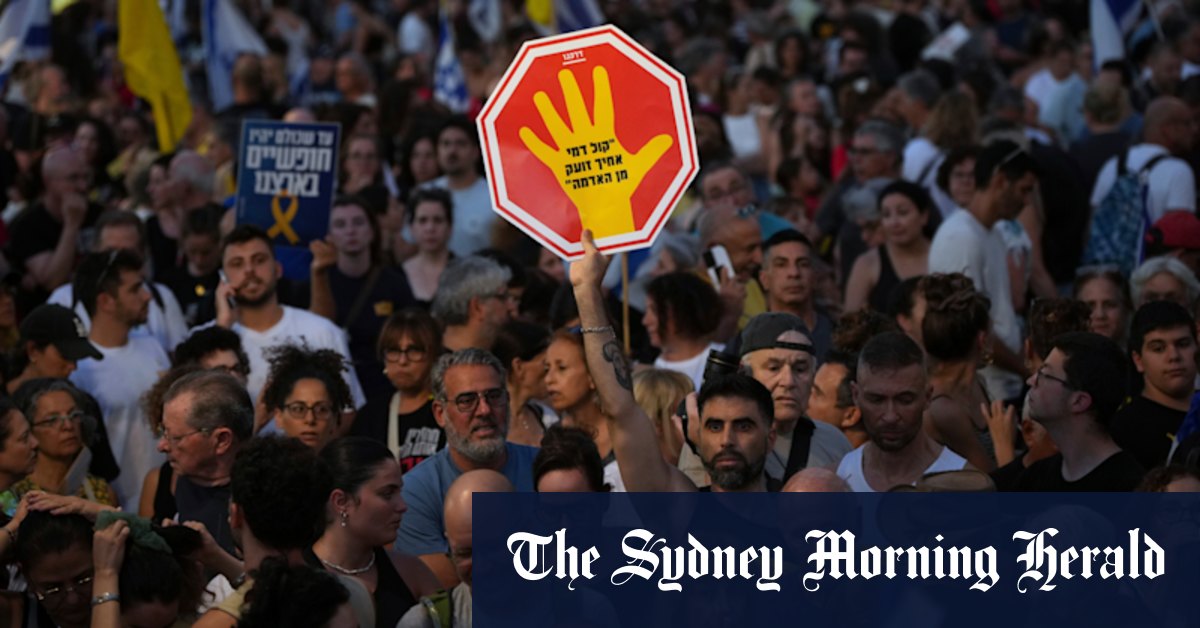
On Sunday, Israel witnessed one of its largest protests in nearly two years as demonstrators demanded a resolution to the ongoing hostage crisis in Gaza. Representing families of hostages, organisers stated that hundreds of thousands of participants flooded major cities, blocking roads and highways, igniting flames of civil unrest across the nation.
Growing Frustration Over Gaza Offensive
The protests come amidst escalating tension over plans for a new military offensive in densely populated areas of Gaza. Many Israelis fear that these actions may jeopardise the lives of the remaining hostages, of which only 20 of the 50 captured are believed to still be alive.
“We are caught between a terrorist organisation holding our children and a government unwilling to release them for political reasons,” lamented Yehuda Cohen, whose son Nimrod is currently a hostage in Gaza. Adding to the pressure, even former Israeli military and intelligence leaders are increasingly calling for negotiations to bring the conflict to an end.
Nationwide Protests and Arrests
Demonstrations erupted in dozens of locations, including in front of political residences, military headquarters, and on major highways. Protesters lit bonfires, blocked traffic, and displayed rare images of malnourished Palestinian children, reflecting the growing humanitarian concerns over Gaza.
Authorities arrested 38 protesters, while numerous businesses, including restaurants and theatres, temporarily closed in solidarity with the demonstrations.
Diverging Opinions on the Conflict
Prime Minister Benjamin Netanyahu faces competing pressures within his government and coalition, with the possibility of a mutiny looming. “Those who call for an end to the war without defeating Hamas are delaying the release of our hostages and enabling the horrors of October 7 to repeat,” Netanyahu declared, referencing the Hamas attack that sparked the current war.
However, far-right members of Netanyahu’s coalition have threatened to destabilise the government if a ceasefire is reached, further complicating any potential resolution.
Humanitarian Crisis in Gaza
Amid the escalating conflict, the humanitarian crisis in Gaza grows dire. Hospitals and eyewitnesses reported that at least 17 individuals were killed on Sunday by Israeli forces, including nine seeking aid near the Morag corridor.
“It’s either take this risk or watch my family starve,” said Hamza Asfour, a Palestinian awaiting UN aid. Despite limited humanitarian aid distribution supported by Israeli and US efforts, the aid flow remains insufficient as starvation and malnutrition reach historic levels. Reports from Gaza’s Health Ministry indicate that over 61,900 lives have been lost in the conflict, with half being women and children.
Uncertainty Looms Over Gaza’s Future
The Israeli military has announced plans to forcibly evacuate Gaza residents from combat zones, directing them to southern regions deemed “safe zones.” However, these zones have also endured bombings, leaving Palestinians with no refuge from the violence. “There are no humanitarian zones at all,” said Raghda Abu Dhaher, displaced 10 times since the conflict began.
As the violence continues to escalate, both sides brace for further uncertainty. The international community continues to call for humanitarian solutions, but a resolution remains elusive.






